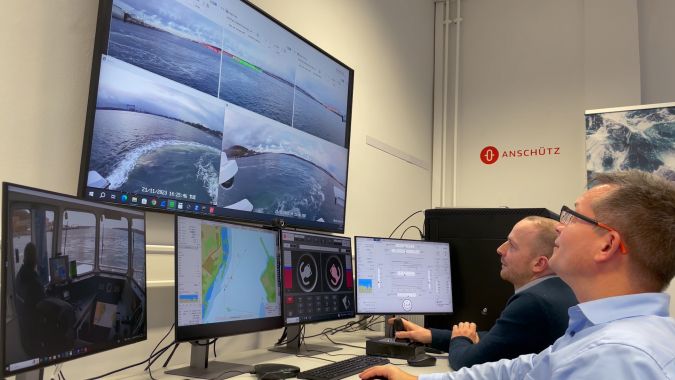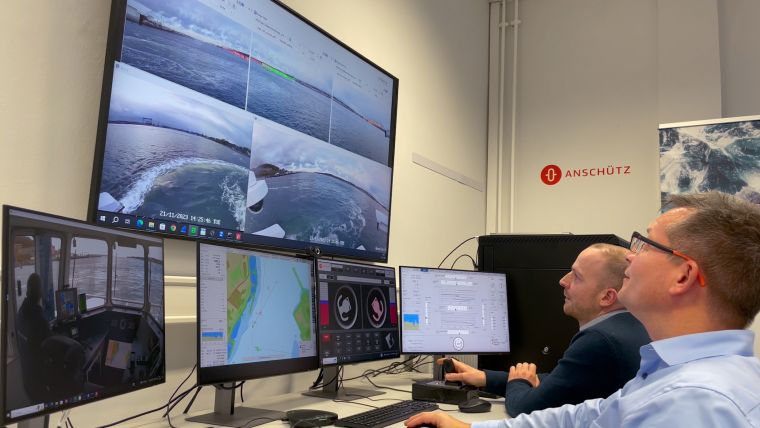Anschütz drives autonomous shipping with CAPTN
Anschütz, a leading expert in navigation and bridge systems, is making significant strides in the development of autonomous and onboard assistance systems for ships. As part of the Clean Autonomous Public Transportation Network (CAPTN) initiative, the company has achieved noteworthy progress in 2023.
Anschütz has established a remote operating centre (ROC) on land to monitor the MV Wavelab, a research catamaran navigating the maritime test field on the Kiel Fjord in Germany. The ROC incorporates a complete digital twin, utilizing data from various sensors and systems onboard the Wavelab. Successful demonstrations of remote control and manoeuvring under diverse environmental conditions have showcased the potential for safer and more efficient maritime operations.
“So far, our focus has been on finding out what information needs to be presented to users and how, so that they can monitor and remotely control a ship safely and efficiently,” stated Daniel Sommerstedt, head of research projects at Anschütz. The next objective is to elevate the level of automation onboard, aiming to conduct the first autonomous driving tests in Kiel by the end of 2024.
Automatic and autonomous capabilities
The ongoing efforts include the automation of control and drive systems on the Wavelab. The Electronic Chart Display and Information System (ECDIS) and autopilot collaborate to facilitate remote control with heading control and autonomous driving using track control and speed control. Research trips are also dedicated to improving low-speed manoeuvrability for future automatic docking capabilities.
“Additional assistance is also important. In our remote operating centre, we process data from new sensors and develop new functions that we can run on our bridge platform,” said Sommerstedt. The next phase in 2024 involves the development and testing of assistance systems, including collision avoidance scenarios based on artificial intelligence and rule- and model-based approaches.
The CAPTN initiative’s vision is to develop autonomous, safe and sustainable public transport systems, connecting the eastern and western shores of the Kiel Fjord with autonomous, low-emission passenger ferries. Anschütz, along with partners from industry and science, is actively contributing to this vision through continuous innovation in navigation systems.
Radar, ECDIS and optical sensors
As part of the CAPTN Fjord Area I research project, the research catamaran Wavelab, equipped with Anschütz’s SYNAPSIS NX Integrated Navigation System, serves as a pivotal platform for autonomous shipping research. The system integrates radar equipment, ECDIS, intelligent data and alarm management, autopilot systems, optical sensors and closed-circuit television cameras, and facilitates data exchange with the ROC for remote monitoring and autonomous navigation trials.
In the Fjord 5G research project, a robust maritime data communication infrastructure has been installed, leveraging a 5G mobile network and a high-performance WiFi-6 network on the Kiel Fjord. The follow-up project, CAPTN Fjord Area II, is already underway, promising extensive research and development efforts for autonomous shipping on the Kiel Fjord in the long term. Future research projects are in the planning stages as part of the ongoing CAPTN initiative.
Project partners in the CAPTN initiative include Anschütz GmbH, Addix GmbH, the University of Applied Sciences of Kiel, the Christian-Albrechts-Universität zu Kiel (CAU), FuE-Zentrum FH Kiel GmbH and the Science Center (WiZe) Kiel GmbH.















